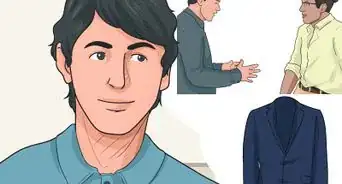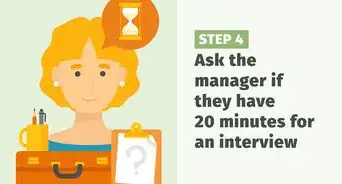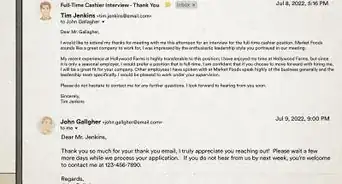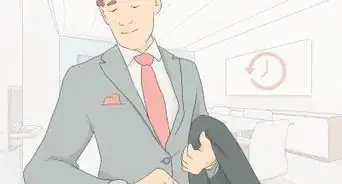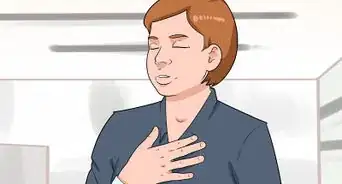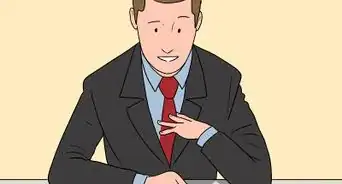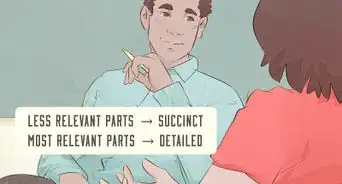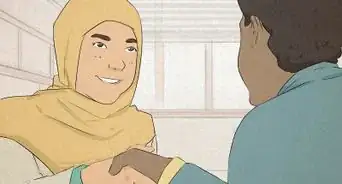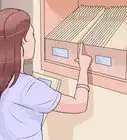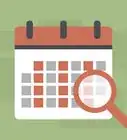This article was co-authored by Shannon O'Brien, MA, EdM and by wikiHow staff writer, Danielle Blinka, MA, MPA. Shannon O'Brien is the Founder and Principal Advisor of Whole U. (a career and life strategy consultancy based in Boston, MA). Through advising, workshops and e-learning Whole U. empowers people to pursue their life's work and live a balanced, purposeful life. Shannon has been ranked as the #1 Career Coach and #1 Life Coach in Boston, MA by Yelp reviewers. She has been featured on Boston.com, Boldfacers, and the UR Business Network. She received a Master's of Technology, Innovation, & Education from Harvard University.
This article has been viewed 645,356 times.
After you interview for a job, sending the interviewer a thank you note is a professional courtesy that may set you apart from the other candidates. A personalized thank you note will show your interviewer you’re passionate about the job. A professional thank you email is all most hiring managers expect, but you might send a handwritten note if you think the hiring manager will appreciate the gesture.[1]
Steps
Sample Interview Thank You Notes
Structuring the Thank You Note
-
1Write a clear subject line if you're sending an email. State exactly what's in the email, such as "Thank you note from interviewee." You want them to know exactly why you’re writing them. Otherwise, they may not open your note right away or may make assumptions about what’s in your email.[2]
- For example, you might write, “Thank you for the job interview yesterday.”
-
2Send an email unless you think they'll prefer a handwritten note. An email is the modern, efficient way of thanking someone for an interview. It's also immediate, so the interviewer will likely receive your thank you note before a hiring decision is made. However, you might still send a handwritten note if you think it would mean more to the person receiving it.[3]
- Generally speaking, handwritten notes are more acceptable in creative and service fields. For instance, you might send a handwritten note if you interviewed for a job as a nonprofit manager for a service organization or a reporter at a small local newspaper.
- On the other hand, a handwritten note may seem outdated if you're applying for a tech job, so it's usually best to skip it.[4]
Advertisement -
3Write neatly if you're sending a handwritten note. Your note won’t be effective if they can’t read it. Use neat handwriting and put enough space between your lines to allow someone to easily read what you wrote. Additionally, don’t write very small, as it could make it hard for the interviewer to read your note.[5]
- Rather than using cursive, write the body of your note in print to make it easier to read.
- Most interviewers don’t expect a handwritten note, but it might get their attention or set you apart from other candidates.
-
4Open your note with “Dear” and their name. You want your salutation to be formal. Make sure you correctly spell their name and use the correct title. Check their business card to find the correct spelling of their name, as well as the title they prefer.[6]
- If you don't have their business card, check their organization's website to see if you can find the information you need there. You may also find it on a site like LinkedIn.
- For example, “Dear Ms. Thompson.”
- Don’t get too casual with your salutation. Avoid opening with words like “Hey.”
-
5Thank them in the first paragraph, citing specific actions they took. Thank them for actions like taking the time to meet with you, explaining the job to you, learning more about your background, or accommodating your schedule. A generic thank you will seem insincere, so mention something unique to your interview.[7]
- You might write, “Thank you for meeting with me yesterday. I appreciate the time you spent explaining the specifics of the position to me, as well as the time you took to get to know me better.”
- If you're writing an email, you might write a short 2-4 sentence paragraph to express your gratitude.
- If you're sending a handwritten note, you should only write 1-2 sentences.
-
6Use the second paragraph to personalize the note with interview details. This shows you're genuinely interested in the job because you're still thinking about the interview. Include details like something you learned in the interview, a question the interviewer asked you, or a topic you discussed. Look for something that stood out, which is more likely to remain in their memory.[8]
- For instance, “Your explanation of the upcoming project made me even more excited about this position. I worked on a similar project in my previous position, so I know I’ll be a great fit for your team.”
- If you're writing a handwritten note, it's okay to write just a sentence or two, depending on how much space you have.
-
7Tell them you’re excited about the job in a brief third paragraph. Sometimes people change their mind about a job after their interview, so you want to let the interviewer know you’re still interested. It’s especially important to let them know this if the interview provided a lot more details into what the job will entail than you had before the interview. Write 1-2 sentences to express this interest.[9]
- Say, “After my interview, I’m even more excited about this opportunity to work with Company, Inc. If you have any more questions about what I will bring to your team, please don’t hesitate to contact me.”
- Although you want the interviewer to know you’re still interested, don’t elaborate on your background or qualifications. This will make your thank you note seem self-serving rather than a true expression of gratitude.[10]
-
8End with a professional complimentary close and your name. Skip a line after your third paragraph, then include a formal complimentary close. After the close, skip 1 line and write your name.[11]
- Great options for a complimentary close include “Sincerely,” “Yours truly,” and “Best regards.”
- Using a formal close increases the professionalism of your email.
- You don’t need to leave room for a signature between your complimentary close and your name when you’re sending an email. This is because you aren’t hand signing it.
-
9Send a short email about your handwritten note if you mailed it. Write a few brief sentences letting them know a thank you note is in the mail. Since your thank you note will likely take days to arrive, it’s best to send a short email letting them know you’ve mailed your note. While this may seem like overkill, not sending an email risks the interviewer assuming you didn’t care enough to send a thank you note.[12]
- You might write, "Dear Ms. Jones, I really appreciate the opportunity to interview with you yesterday. I mailed a thank you note to you today, so you should receive it shortly. Sincerely, Luz Lopez."
- This is more of a concern if you expect them to make a quick hiring decision.
- As an alternative, you could hand deliver the note.
Keeping Your Note Professional
-
1Send your thank you note within 24 hours of your interview. It’s likely the interviewer is meeting with several potential candidates, so their memory of your interview may fade over time. They’re more likely to remember you and what you talked about during your interview if you thank them within one day of your interview.[13] [14]
- Wait at least an hour after your interview before sending your thank you note. Otherwise, you might seem too aggressive.
- If you’re sending a handwritten thank you note, deliver it in person or mail it on the day of your interview.
-
2Use professional language throughout your thank you note. Treat your thank you note as a business communication. Write your sentences using proper grammar, and avoid using slang or text-speak.[15]
- You might cost yourself the job if you use informal language like slang or text-speak. For example, avoid using abbreviations like "lol," "fwiw," and "rn."
- Similarly, don't begin your email with salutations like "hey" or "hi." Always use "dear" when you're writing a professional message.
- As you proofread your letter, check for words used incorrectly, such as "there," "their" and "they're."
-
3Match the tone of your interview. While you always want to come across as professional, your tone can range from formal to casual. You want to show your interviewer that you’ll fit into the company culture, so use the tone they set at the interview.[16]
- For example, let’s say you interviewed with a modern tech company that boasts about its friendly, down-to-earth culture. If the interview process has been informal, you might use a more casual tone in your thank you note.
-
4Keep your message concise rather than overly wordy. You don’t want to waste the interviewer’s valuable time, so don’t elaborate too much. Be specific and direct in your statements.[17]
- Your paragraphs will be very short. It’s normal for them to be 1-4 sentences long.
-
5Stick to personal details discussed during the interview. You may learn personal information about your interviewer from a Google search or their social media accounts. Don’t include this information in your note, as doing so will likely make them uncomfortable. This behavior could make you look like a stalker, even if you’re just trying to ensure you’re the right fit for the job.[18]
- For example, you might have learned from their Linkedin profile that they graduated from the same program as you. It’s best not to mention this unless it came up during your interview.
- You don’t need to include personal details at all, so you might choose to stay away from this type of information.
-
6Proofread your thank you note carefully before sending it. Read over the note at least twice to check for typos and other errors. If you can, ask someone else to read over it, as well. Fix any errors before you send the note.[19]
- Typos or incorrectly used words might cost you the job, as the interviewer might view them as inattention to detail.
Community Q&A
-
QuestionCan I send a thank you note for a school interview?
 Community AnswerYou could, but it is not necessary.
Community AnswerYou could, but it is not necessary.
Warnings
- Don’t apologize for any mistakes you made during the interview or ask any additional questions.[20]⧼thumbs_response⧽
- It’s best to use simple stationery if you’re writing a handwritten note. Don’t use a notecard or stationery that has a decorative picture or fragrance.⧼thumbs_response⧽
- Don’t send your thank you via social media, as it may be viewed as unprofessional. Additionally, the interviewer may not check their social media often.[21]⧼thumbs_response⧽
References
- ↑ https://www.cnbc.com/2018/11/09/make-your-best-impression-on-hiring-managers-with-great-thank-you-notes.html
- ↑ https://www.inc.com/michael-schneider/how-to-write-perfect-post-interview-thank-you-note.html
- ↑ https://www.cnbc.com/2018/11/09/make-your-best-impression-on-hiring-managers-with-great-thank-you-notes.html
- ↑ https://money.usnews.com/money/careers/interviewing/articles/2018-02-16/10-mistakes-to-avoid-on-a-thank-you-email
- ↑ https://www.fastcompany.com/3057431/heres-what-to-write-in-your-thank-you-note-after-a-job-interview
- ↑ https://www.inc.com/michael-schneider/how-to-write-perfect-post-interview-thank-you-note.html
- ↑ https://www.inc.com/michael-schneider/how-to-write-perfect-post-interview-thank-you-note.html
- ↑ https://www.fastcompany.com/3057431/heres-what-to-write-in-your-thank-you-note-after-a-job-interview
- ↑ https://www.fastcompany.com/3057431/heres-what-to-write-in-your-thank-you-note-after-a-job-interview
- ↑ https://www.inc.com/michael-schneider/how-to-write-perfect-post-interview-thank-you-note.html
- ↑ https://www.inc.com/michael-schneider/how-to-write-perfect-post-interview-thank-you-note.html
- ↑ https://www.fastcompany.com/3057431/heres-what-to-write-in-your-thank-you-note-after-a-job-interview
- ↑ Shannon O'Brien, MA, EdM. Life & Career Coach. Expert Interview. 25 May 2021.
- ↑ https://www.fastcompany.com/3057431/heres-what-to-write-in-your-thank-you-note-after-a-job-interview
- ↑ https://www.inc.com/michael-schneider/how-to-write-perfect-post-interview-thank-you-note.html
- ↑ https://money.usnews.com/money/careers/interviewing/articles/2018-02-16/10-mistakes-to-avoid-on-a-thank-you-email
- ↑ https://www.inc.com/michael-schneider/how-to-write-perfect-post-interview-thank-you-note.html
- ↑ https://www.cnbc.com/2018/11/09/make-your-best-impression-on-hiring-managers-with-great-thank-you-notes.html
- ↑ https://www.fastcompany.com/3057431/heres-what-to-write-in-your-thank-you-note-after-a-job-interview
- ↑ https://money.usnews.com/money/careers/interviewing/articles/2018-02-16/10-mistakes-to-avoid-on-a-thank-you-email
- ↑ https://www.cnbc.com/2018/11/09/make-your-best-impression-on-hiring-managers-with-great-thank-you-notes.html
About This Article
To write an interview thank you note, send it within 24 hours of your interview, but wait at least 1 hour so you don't seem too aggressive. Open your note with a formal greeting, like "Dear Mrs. Thompson." Then, thank the person for taking the time to meet with you, and bring up a specific detail from your interview. For example, you could write, "Your explanation of the upcoming project made me even more excited about the position." Finally, conclude your note with something formal, like "Sincerely," or "Best regards." For tips on how to keep your thank you note professional, scroll down!
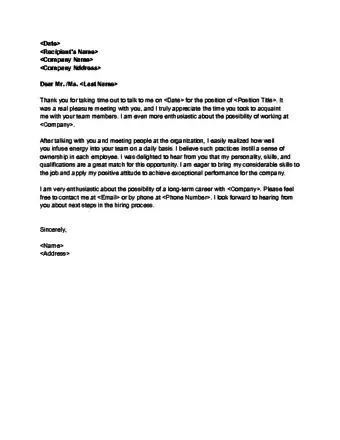



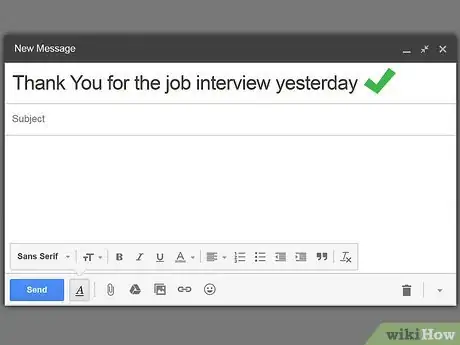
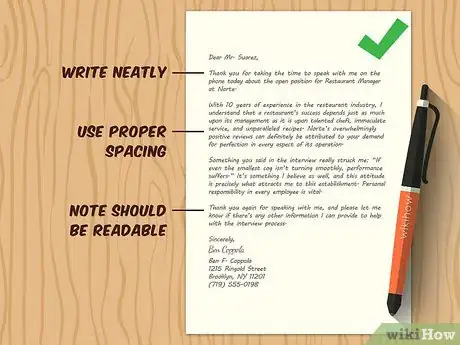



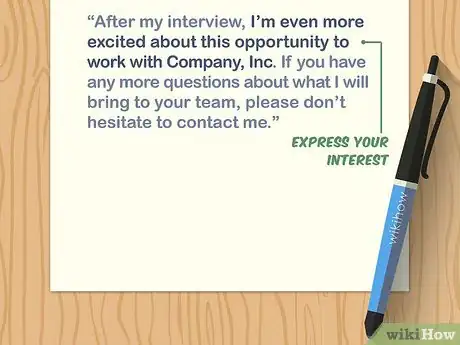


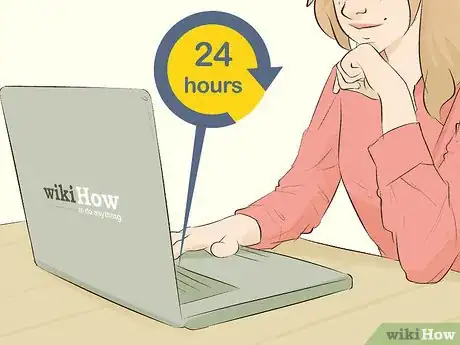







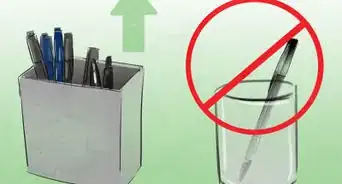
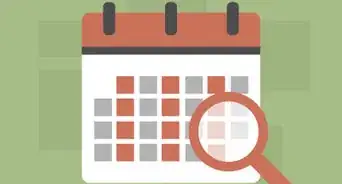
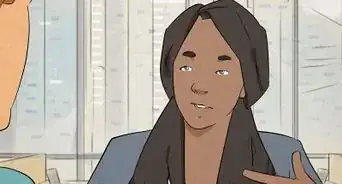
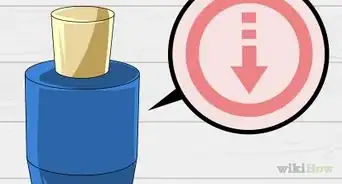
-Step-5-Version-4.webp)
